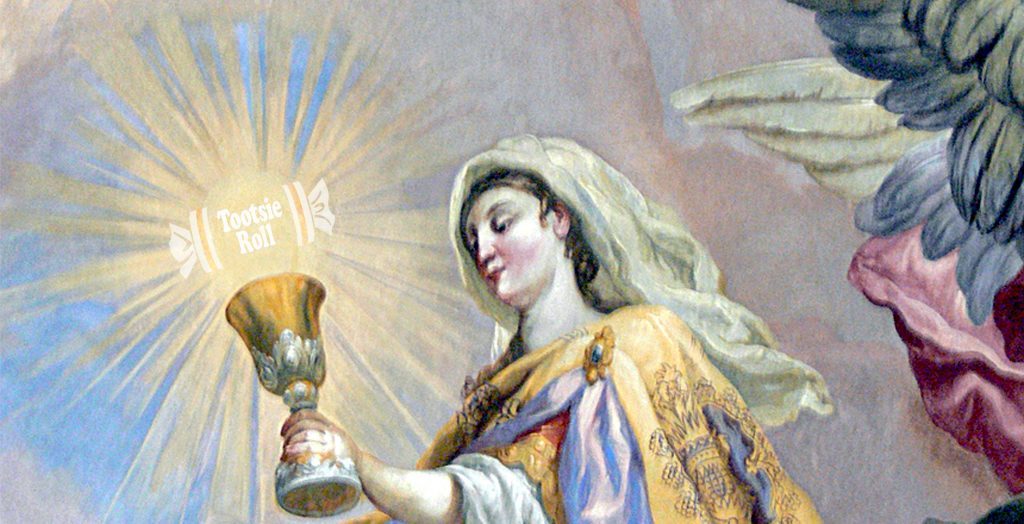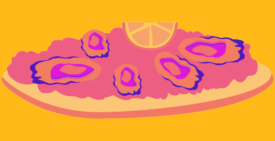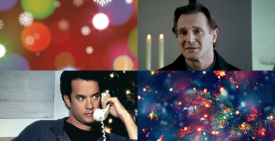
I anticipated my first motherless Mother’s Day in the same way I’d anticipated my first day at Catholic school or the first time I had sex. Sure, I was nervous, and sure, I was prepared for it to wreak some serious emotional havoc. But the whole enterprise had been teased so thoroughly in the media that I was determined to experience the hell out of it.
The 2014 Mother’s Day blitz officially began at 8:57 am on April 24, more than two weeks early, with an email from the Designer Shoe Warehouse. DSW cordially invited me to check out the sandal of the season, all while showing MOM I really knew her style! Nothing says ‘thanks for making me alive!’ like a pair of bedazzled $29.99 Madden Girl thongs.
“Sporty Mom! Fashionista Mom! Nature-loving Mom! Every Mom Covered!”
Every mom? I wondered how store management would react if I came up to checkout with a box of ashes and some half-price flats to ask if they would be so wonderfully kind so as to set the shoes on fire for me in-store so that my mom could wear them out.
Spotify was, by far, the worst offender. Every 10 minutes or so David Bowie or Beyoncé would be interrupted by one or two thirty-second reminders that I should honor Mom with chocolates or flowers or, best yet, a subscription to Spotify premium. I recognize music isn’t free, that ads are a necessary part of the unpaid experience. Still, being reminded every 10 minutes that, right, mom’s dead, makes it a lot harder to jam out to “Partition” on the eastbound M86.
Meghan O’Rourke, who has written very intelligently on being unmothered, observes that, despite her ambivalence,“the endless mentions of the holiday everywhere…have forced me to take stock, whether I want to or not.”
That’s really the issue here. I don’t have a problem with Mother’s Day in general; I have a problem with the constant ads forcing me to engage with it without my consent. They remind me that I’m not in control of my own grieving process, and sometimes that reminder pisses me off.
So I went into Mother’s Day 2014 ready to do a some healthy lashing out. I woke up early and headed into my weekend job at a Manhattan-based greenmarket. As I weighed lettuce and bagged cherry tomatoes, I waited, almost excited, for a cheerful customer to remind me to give my mom a call.
Related
“Actually,” I’d say, drawing myself up with the full weight of my tragedy behind me, “I can’t call my mother. She died just this year.”
The customer would gasp, apologize, and slink away, and I would have struck one righteous blow against the corporate tyranny of Mother’s Day.
Except that didn’t happen. I actually had a really nice day. The sun was out, the air was warm, the customers kept me busy and the vegetables I sold tasted good. A few customers reminded me to have a happy Mothers’ Day, and I silently judged them.
One woman said, “Happy Mother’s Day! Unless your parents are dead. I don’t know your life,” and I silently appreciated her.
I packed up the stand, I got paid, I went home to take a nap. Overall I felt fine.
In the groggy nap-aftermath, I began to feel less fine. I felt, I realized, disappointed. I’d been so ready for this day to mean something —to be somehow revelatory or cathartic – that it’s ordinary-ness seemed inappropriate. I have a recurring insecurity that I’m somehow doing grief wrong, and that fear began to intensify.
Why am I not sad? Why am I not angry? Oh my dear lord. Am I secretly some kind of sociopath?!
As the anxiety crept towards panic, I thought about DSW and Spotify. Over the past two weeks these organizations had worked so hard to make Mother’s Day a “thing.” They wanted it to be a thing? Fine. I’d make it a thing. I’d make it my own damn thing.
I calmed myself down and sent out a group text.
“Meet me at Riverside Park at 9 pm for a Mother’s Day ritual. Bring your lovely selves.”
I found out the next day that a few of my friends had blown off the text because they thought the word “ritual” implied I might sacrifice a chicken, à la The Crucible’s Abigail Williams.
I’m 21 now, and let me tell you about people my age. We’re almost culturally pressured to be selfish. Most of us don’t know how to talk about death or support one another through a real crisis. Even making plans with another 20-something is a mythical feat. At the last minute of you inevitably becomes so exhausted or remembers an urgent assignment, a rain check is agreed upon, and the boulder rolls right on back to the bottom of the hill. I do this as much as anyone.
In general we suck, and that’s fine. Your twenties are for learning to not suck.
The problem arises when something bad happens—when you get sick or get attacked or watch someone die—and you look around and realize your support network is made up primarily of people who couldn’t keep a date with destiny.
So I was pleasantly surprised when, at the park, three of my friends showed up. They stood around me in the warm semi-darkness as I sat on a ledge overlooking the park, explaining why we were here. I poured apple cider and fed everyone Tootsie Rolls. I explained that these were always present at my mom’s birthday parties. That they reminded me of her. I told a few stories. I told them her name.
There was a short silence, and then, one by one, each girl spoke about her own mother. Her own family. What it felt like to be at college. I refilled cups and passed out more candies as we talked.
My maternal grandfather was an Episcopal priest, and even though I haven’t believed in God since I was 8, something in my epigenetic code has always drawn me back to communion.
Communion is the central event of most Christian church services. Bread and wine are blessed and shared among the congregation. Some traditions insist that this blessing, like, literally turns the bread and wine into the body and blood of Jesus—which I personally find a little creepy and literalistic. But for a lot of people taking communion is a symbolic act, a way to feel physically connected to the people around them, a mechanism to tap into the collective strength of their community. With the right people at the right church, that awful wine and those papery communion wafers can make you feel unbelievably safe and loved.
It doesn’t take much to connect the two experiences. In that park the four of us transubstantiated those Tootsie Rolls and sanctified the heck out of that cider.
For me, the distinction between literal and symbolic is important. I don’t think I literally communicated with my mother that night. I don’t believe I can. But sharing candy and juice with women who had performed the simple, difficult act of showing up, that was absolutely communion.
Afterward we all sat for a minute, then packed up and headed home. We passed a pair of older dog-walkers who had doubled back past us three times, trying to figure out if we were doing anything illegal. For once, for the record, we weren’t. Walking together against their suspicious glares, I felt, if not safe, then at least loved.
Ruby Dutcher is an intern at Modern Loss and a rising senior at Barnard College in New York. She writes for the site and makes stories for the radio sometimes.












